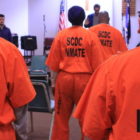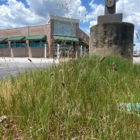
Meet Gary Green Our New Executive Director
|
This summer Kennesaw State University hired Gary Green as executive director of the Center for Sustainable Journalism, publisher of JJIE.org. Green joined the CSJ from the University of Florida where he served since 2014 as digital director of the Innovation News Center and deputy news director for WUFT News, the NPR and PBS affiliates for north-central Florida. During his tenure at UF, he managed award-winning coverage — breaking news, daily and enterprise stories, investigative and long-form projects — across TV (PBS), radio (NPR), web and social media platforms. He co-founded Fresh Take Florida, UF’s state government news service, and led collaborations between the First Amendment Foundation, the National Freedom of Information Coalition and statewide news organizations. His leadership extended beyond UF, across the state as the university’s designate for the Florida Climate Reporting Network and as board trustee for six years at the First Amendment Foundation; most recently he served as vice chair of the board. “As we enter the latter half of what has been an extraordinary year with challenges many of us could never have imagined, the Center for Sustainable Journalism remains as dedicated as ever to lifting the voice of our country’s most vulnerable youth and reporting on the systemic injustices that plague their lives and prevent them from realizing their dreams,” Green said, “and while doing so, providing Kennesaw State University students experiential learning opportunities for professional development through the CSJ.”
“I am privileged that KSU offered me this opportunity to serve our students, our local community and national audiences to fulfill the mission of the university and CSJ.








